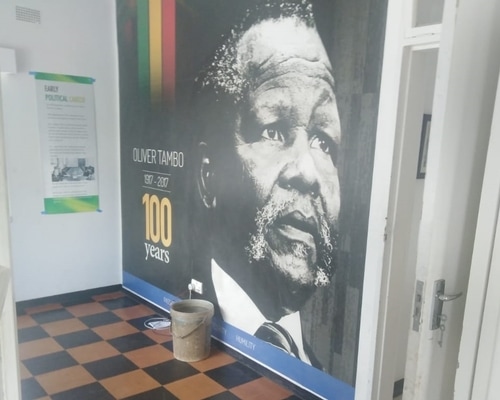Lusaka, Zambia’s capital hosts some of the historic buildings. Veteran journalist and historian, Moses Walubita takes a look at some of the landmark buildings and the role they played during the country’s independence struggle.
In Lusaka’s Matero township lies the historic house number 3144B, just next to ‘Humanism Hill’. It is on Monze Road near Matero Level One Hospital.
“From 1959 to 1961, this house was used as the headquarters of the United National Independence Party (UNIP). Much of the campaign which led to the independence of Zambia was planned here”, reads a plaque on the house, one of the national monuments run by the National Heritage Conservation Commission. The Commission is under the Ministry of Tourism.
UNIP was the country’s governing party from 1964 to 1991 under the leadership of the first Zambian President, Dr Kenneth David Kaunda who led the country for 27 years.
During the struggle for freedom in Southern Africa and Africa as a whole, Zambia faced military incursions from racist forces in neighbouring countries and many people died.

Kaunda’s Chilenje House
In Chilenje township, south east of Lusaka, is Dr Kaunda’s old house. On 21 October 2014, as part of the country’s Golden Jubilee celebrations under the theme, “commemorating God’s favour of 50 years for continued peace, unity, democracy, patriotism and prosperity, the reworked house was unveiled and re-opened to the public.
The statue of the country’s first president was also unveiled at the same ceremony attended by Dr Kaunda himself and Given Lubinda, then Kabwata Member of Parliament.
ANC in Zambia
To the east of Lusaka in Chelstone township, off the Great East Road is the Oliver Reginald Tambo Heritage House in Chelstone. The house is opposite the Catholic Church, separated by the Great East Road which runs in between the two buildings.

Photos of various leaders during the struggle for independence decorate the walls of the heritage house. The life history of Oliver Tambo, who led the longest-serving president of South Africa’s governing African National Congress (ANC) party who lived in exile for 30 years is also written on the walls of the house.
As part of the 100 years anniversary of the ANC, the renovated house was officially launched by then Presidents of Zambia and South Africa, Edgar Lungu and Jacob Zuma on 13 October 2017 respectively, during the latter’s state visit to Zambia. This was in honour of Mr Tambo for his contribution to South Africa and Africa’s liberation struggles.
The house signifies the role Zambia played during the liberation struggle of South Africa by keeping and supporting one of that country’s greatest freedom fighters who was believed would be the future republican President.
The Heritage House was declared a national monument to keep the legacy of Mr Tambo alive. He died on 24 April 1993.
Mr Tambo’s life history in photos

In one of pictures is Nelson Mandela and his comrade in the struggle, Mr Tambo at a press conference after the conclusion of the ANC’s Congress at Nasrec, Johannesburg, South Africa in 1990.
Another picture shows Mr Tambo, accompanied by Thabo Mbeki when he met then Russian President Mikhail Gorbachev in Moscow in November 1986.
In other pictures is Mr Tambo with other leaders – Messrs. Kaunda and Mandela during the former’s visit to Zambia after his release from prison. The two met in Lusaka on 11 July 1990.
Zambia was the first country in Africa which Mr Mandela visited after his release from prison. Mr Tambo returned home to South Africa on 13 December 1990 after spending 22 years in Zambia during his 30-year exile.
A picture that stands out is one where the smiling Mr Tambo is lifting his hands at Mulungushi International Conference Centre in Lusaka, to show belief that the burden of the struggle has finally been lifted.

“When he has the glasses on, he is a smiling Oliver Tambo, when he removes the glasses, he means business,” says James Simbaya, Conservationist at the National Heritage Conservation.
For example, in December 1990, in Johannesburg, South Africa, at a press conference for the ANC, Mr Tambo is seen without glasses during a discussion with Mr Mandela.
At another occasion, Mr Tambo is seen with his glasses on while talking to Walter Sisulu in Stockholm, Sweden for the first time since Mr Sisulu was released from prison.
Mr Simbaya describes Oliver Tambo’s heritage house as one of the iconic buildings in Zambia. It is a house which sheltered the gallant and longest-serving ANC President during his exile years in Zambia.

Read more on Oliver Tambo’s history.
The Author is a seasoned Zambian Journalist/Historian

Discover more from MAKANDAY
Subscribe to get the latest posts sent to your email.



